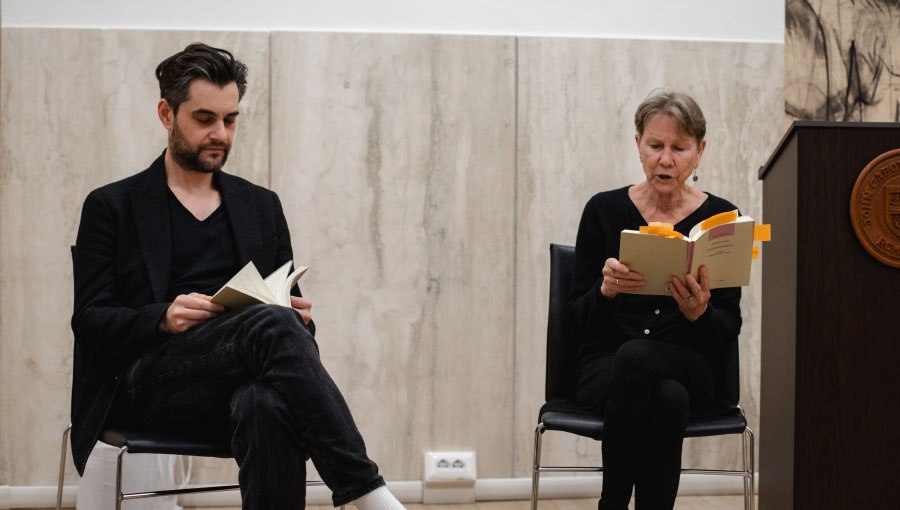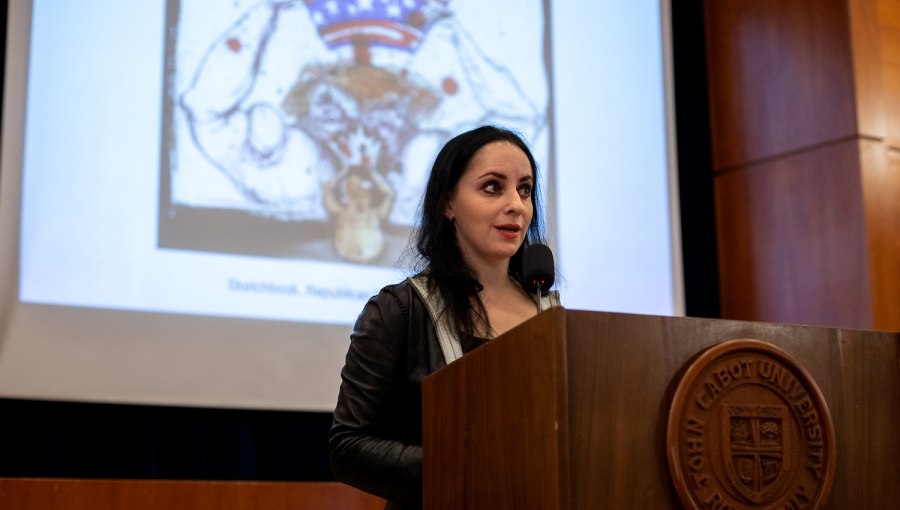Argentina's Political Shift: Professors Blake and Bey on Javier Milei's Rise to Power and Economic Impact
On September 10th, the Guarini Institute for Public Affairs welcomed Charles H. Blake and Facundo Bey for an event that focused on the political landscape of Argentina under Javier Milei’s administration. The event gave a comprehensive analysis of Milei’s rise to power in Argentina and the factors that contributed to his political career.

Professor Bey began the discussion by analyzing factors such as eroding social and political structures in Argentina, which caused corruption in leading political parties and social discontent. Economic imbalance also affected Milei’s path to succession due to inflation, poverty, and the devaluation of the peso. Argentina’s external debt caused a deterioration of public administration services and generated public disappointment in the political regime. These factors created a socioeconomic vacuum, which Milei successfully took advantage of in order to become a prominent political figure in Argentinian culture. According to Bey, “the implosion of bicoalitionism facilitated Milei’s rise to power by creating a scenario devoid of strong counterparts or influential leadership capable of unifying a fragmented, delegitimized, and pragmatic opposition.”
Professor Blake analyzed Milei’s political career and the effect of his administration on Argentina and Argentina’s economy. Before becoming a politician in 2021, Milei was a guest on many talk shows, where he utilized a conflictual, energetic style to gain popularity. Milei used his social and mainstream media presence to win a legislative seat in 2021 and then to run for the presidency in 2023. The strategies used by his campaign transformed political communication in Argentine politics. His innovative media strategies and anti-establishment policy ideas proved to be particularly popular with young people, especially young males. As president, Milei immediately cut public spending drastically. This policy succeeded in reducing the monthly inflation rate by mid-2024, but it has also caused a deep recession with increases in poverty and unemployment. Moving forward, the ability of the Milei government to pursue his re-election in 2027 will depend on improved socioeconomic results, as well as on the leadership renewal decisions made by the major center-left and center-right political parties in Argentina.
Learn more about the Guarini Institute for Public Affairs at John Cabot University.
Charles H. Blake, who teaches Political Science at James Madison University, has spent his career bringing together the academic worlds of Europe and Latin America. He currently runs JMU’s political science master’s program in Florence while also helping students to join study-abroad programs in Buenos Aires.
Facundo Bey, who earned his doctorate in Philosophy from Argentina’s National University of General San Martín, now conducts research in Venice at Ca’ Foscari University, and in Ecuador at the Pontifical Catholic University. His academic journey reflects his fascination with political philosophy, particularly how German scholars interpreted classical political thought between the World Wars.
(Rori Sebach)





